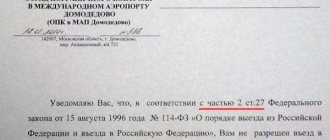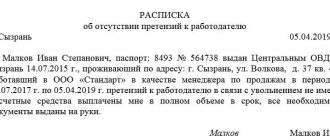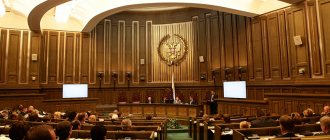What should a person challenging a decision of the OSS do?
A person who wants to challenge the decision of the meeting must notify other participants in the civil law community of his intention to file a claim in court (clause 6 of Article 181.4 of the Civil Code of the Russian Federation).
The notification must be confirmed, for example, by acts signed by the owners of the apartments located in the building on the placement of information about the OSS on the information boards of the building. If you do not provide evidence of notification, the court will leave the statement of claim without progress (clause 115 of the resolution of the Plenum of the Armed Forces of the Russian Federation dated June 23, 2015 No. 25).
Who can appeal and challenge decisions of the OSS?
The bodies of the Civil Housing Inspectorate and municipal housing supervision, as well as the owners of premises can appeal the decisions of the OSS (Article 20, paragraph 6 of Article 46 of the Housing Code of the Russian Federation). Management organizations cannot appeal the decisions of the OSS, because they are not the owners of the premises.
Before the decision is made, participants in the civil law community can join a lawsuit to challenge the decision (clause 117 of the Resolution of the Plenum of the RF Armed Forces dated June 23, 2015 No. 25). The owners who voted “for” the decision have the right to enter into the case on the side of the defendant as third parties without independent demands.
If neither one nor the other did this, they lose the right to re-challenge the decision of the OSS, even on grounds not stated in the claim. An exception is cases when the court recognizes the reasons for non-alignment as valid (clause 6 of Article 181.4 of the Civil Code of the Russian Federation).
Failure to notify the participant of the initial claim in the manner prescribed by paragraph 6 of Article 181.4 of the Civil Code of the Russian Federation will be considered a valid reason.
The court can involve other owners of premises in the apartment building to participate in the case only in two cases: the plaintiff duly notified other participants in the civil law community of his intention to go to court and they responded, and if someone wanted to join the case as third parties without independent claims on the defendant's side.
If the plaintiff notified other owners of premises in the apartment building that he wanted to go to court, but they did not want to join the claim or refused to join as third parties, the court does not involve them in participating in the case.
On the right of the housing inspection body to doubt the reliability of the OSS protocol
2542420
When can a decision of the OCC not be invalidated?
The criteria for the materiality of violations in order for a meeting decision to be declared invalid, established by the Civil Code of the Russian Federation, differ from those established by the Housing Code of the Russian Federation. The latter provides for the need to establish the fact of causing losses to the person challenging the general meeting.
The decision of the OSS cannot be invalidated if the vote of the person whose rights are affected could not influence the decision and the decision does not entail significant adverse consequences for this person (Clause 4 of Article 181.4 of the Civil Code of the Russian Federation). In such cases, the court has the right to uphold the appealed decision (Part 6 of Article 46 of the RF Housing Code).
State Housing and Construction Supervision Service of the Irkutsk Region
30.09.2019
By virtue of Part 5 of Article 46 of the Housing Code of the Russian Federation (hereinafter referred to as the Housing Code of the Russian Federation), the decision of the general meeting of owners of premises in an apartment building (hereinafter referred to as the decision of the OSS MKD), adopted in the manner established by the Housing Code of the Russian Federation, is binding on all owners until it is declared invalid by the court, including for those owners who did not participate in the voting.
At the same time, an owner who did not participate in the general meeting of owners of premises in an apartment building (hereinafter referred to as the OSS MKD) or voted against the decision of the OSS MKD put to a vote, if this decision violated his rights and legitimate interests and was adopted in violation of the requirements of the Housing Code of the Russian Federation , has the right to challenge such a decision in a court of general jurisdiction (Article 11, Part 6, Article 46 of the RF Housing Code, Article 3, Clause 1, Article 22 of the Code of Civil Procedure of the Russian Federation).
In accordance with Part 6 of Article 46 of the Housing Code of the Russian Federation, an application to appeal the decision of the general meeting can be filed by the owner in court within six months from the day when he learned or should have learned about this decision.
The court has the right to uphold the appealed decision of the general meeting if:
— the owner’s vote could not influence its results;
— the violations committed are not significant;
— the decision made did not cause losses to the complainant.
In its ruling dated December 24, 2013 No. 1974-O, the Constitutional Court of the Russian Federation indicated that these legal provisions, in conjunction with other norms of the Housing Code of the Russian Federation, defining the competence of OSS MKD, ensuring the necessary balance of interests of premises owners, taking into account the requirements of the constitutional principle of fairness and providing for the possibility of cancellation decisions of OSS MKD are aimed at ensuring the functioning of management bodies of apartment buildings and respecting the rights of owners of premises in an apartment building and cannot be considered as violating the constitutional rights of citizens.
The law connects the possibility of a judicial challenge to the decision of the OSS MKD with the presence of a set of conditions provided for not only by Article 46 of the Housing Code of the Russian Federation, but also in the part not regulated by this special norm, or in the part specifying its provisions, the presence of conditions established by the provisions of Articles 181.3, 181.4, 181.5 of the Civil Code of the Russian Federation (hereinafter referred to as the Civil Code of the Russian Federation).
At the same time, the admission of any violations of the procedure for conducting the OSS MKD does not in itself entail the absolute need to recognize such a decision as invalid, provided that there are no other grounds for this provided by law.
The decision of the OSS MKD, in case of violation of the procedure for holding such a meeting, may be declared invalid by the court due to its contestability
in the presence of a combination of the following circumstances:
1) an application for recognition of the decision of the general meeting was submitted by the owner who did not participate in this meeting or voted against such a decision;
2) the vote of the owner who did not participate in the general meeting could affect the voting results;
3) during the general meeting, violations of the decision-making procedure were committed. Violations of the decision-making procedure may include, inter alia, violations relating to the convening, preparation, and conduct of a meeting, and the implementation of the voting procedure;
4) the decision of the general meeting violated the rights and legitimate interests of the owner appealing this decision;
5) the decision of the general meeting entailed causing losses to the owner appealing the decision.
Thus, the decision of the OSS MKD can be recognized by the court as invalid only in the presence of all the specified circumstances that are disputable.
The decision of the OSS MKD, declared invalid by a court decision, is not subject to application (for example, if the court invalidates the decision of the general meeting of owners on the procedure for determining the amount of payment for the maintenance of residential premises, this fee is subject to recalculation based on the procedure for determining the amount of the fee, determined in accordance with the previous conditions management agreement for an apartment building).
Also, according to Article 181.5 of the Civil Code of the Russian Federation, the decision of the OSS MKD is invalid regardless of whether it is recognized as such by the court (void) if it:
1) adopted on an issue not included in the agenda, except if all owners took part in the meeting;
2) adopted in the absence of the necessary quorum; holding a meeting in the absence of a quorum is an absolute basis for declaring the decisions taken at it invalid (void) and having no legal force;
3) adopted on an issue not within the competence of the meeting;
4) contradicts the basics of law and order or morality.
A void decision of the OSS MKD does not require independent challenge by a participant in this civil law community. A void decision is invalid from the moment it is made.
The circumstances that give reason to believe that the decision of the OSS MKD is void can be invoked by the person whose rights were violated by this decision.
It should be noted that the state housing supervision body can apply to the court to challenge the decision of the OSS MKD.
Part 6 of Article 20 of the Housing Code of the Russian Federation gives the state housing supervision body the right, but not the obligation, to apply to the court to invalidate a decision made by the OSS MKD or the general meeting of members of a homeowners' association or housing cooperative in violation of the requirements of the Housing Code of the Russian Federation.
However, in order for the state housing supervision body to exercise its right, it must have documents containing irrefutable information about the presence of the totality of all the above circumstances, indicating the invalidity of the decision of the OSS MKD.
In addition, the state housing supervision body may apply to the court with a corresponding application in the event that the decision of the OSS MKD violates the rights and legitimate interests of the majority of owners of premises in an apartment building.
In all other cases, the law grants the right to apply to the court to challenge the decision of the OSS MKD only to the owner who did not take part in this meeting or voted against such a decision and if such a decision violated his rights and legitimate interests.
How is the quorum of a contested meeting determined?
In the owner’s decision on issues put to vote, in accordance with clause 2, part 5.1 of art. 48 of the Housing Code of the Russian Federation, information about the document confirming the right of ownership of the voting participant to the premises in the house must be indicated.
If there is no such information on the ballot, this is grounds for excluding such a ballot from the vote count. If the court has doubts about the submission of ballots within the voting period, it invites the parties to present additional evidence or puts for discussion between the parties the question of questioning the owners who signed the ballots.
The mere absence of a date for filling out a ballot, in the presence of other evidence confirming the filing of ballots within the established period, is not considered a basis for invalidating the decision.
If the parties have not provided evidence of compliance with the requirements of the law, the quorum of the contested meeting is determined based only on those decisions of the owners of the premises of a given apartment building, which indicate the date of their filling (determination of the Supreme Court of the Russian Federation of July 17, 2018 No. 5-KG18-51).
How many votes of owners are used to make decisions at the OSS?
24790993
Grounds for invalidity of meeting decisions
To invalidate a meeting's decision, there must be violations of the law that were committed when making the decision.
According to the law, the solution may be:
- Void (a court decision is not required to be recognized as such);
- Contestable (this decision is made by court decision).
Recognition of the invalidity of a meeting's decision is carried out in the manner prescribed by civil law. Violations that may serve as grounds for invalidating a meeting’s decision include the following:
- During the voting, the rights of voters were violated;
- There was no quorum for voting;
- The decision was made bypassing the agenda and competence of the meeting;
- The decision is contrary to the norms of morality and law and order.
If the court recognizes the decision as invalid, the invalidity is considered to come into force from the moment the decision of the meeting is adopted.
How to correctly apply the statute of limitations?
The limitation period for declaring a void decision of the OSS invalid is calculated by analogy with paragraph 5 of Art. 181.4 of the Civil Code of the Russian Federation (clause 112 of the resolution of the Plenum of June 23, 2015 No. 25).
This means that the decision of the meeting can be challenged in court within six months from the day when the person whose rights were violated learned or should have known about it. But no later than two years from the day when information about the decision made became publicly available to participants in the meeting.
Information about the decision made is considered publicly available if it is posted:
- on the notice board;
- in the media;
- in the Internet;
- on the official website of the relevant authority;
- a link in the payment document sent to the participant challenging the decision.
Information is considered publicly available until the person whose rights have been violated proves otherwise.
Invalidation of a meeting decision as a way to protect civil rights
The invalidity of the meeting's decision is recognized in accordance with the rules of law to protect the civil rights of individuals and legal entities.
If the decision on invalidity is made by the court, such a transaction is voidable. If there is no need to go to court to recognize the invalidity, such a transaction, according to legal norms, is considered void.
Decisions of general meetings must be based on compliance with the law, which provide for the protection of civil rights of legal entities and individuals. The consequences of the invalidity of the meeting's decision are considered based on the relevant norm of civil law.
Let's sum it up
Here's what you need to remember before you go to challenge the OSS decision in court:
- A person challenging the decision of the OSS MKD must first inform the other owners of the premises in the house of his intention to file a claim in court. Otherwise, the claim will remain without progress.
- The defendant in a claim to invalidate a decision of an MKD meeting may be the initiators of the controversial meeting or the persons who led them.
- If the signature of the initiator of the OSS in the protocol is forged, the court will involve as a defendant the MA that received the house on the basis of the contested decision.
- OSS participants who voted for the decision can join the case as third parties without independent claims on the defendant’s side, and their opponents have the right to join the claim as a co-plaintiff until the decision is made.
- The subject of the challenge is the decisions taken, not the OCC protocol.
- If the ballot does not contain information about the document confirming the ownership of the premises in the apartment building, this is considered grounds for excluding such a ballot from the vote count.
- The court will invite the parties to provide additional evidence and discuss the issue of questioning the owners if it doubts that the ballots were submitted on time for the voting.






